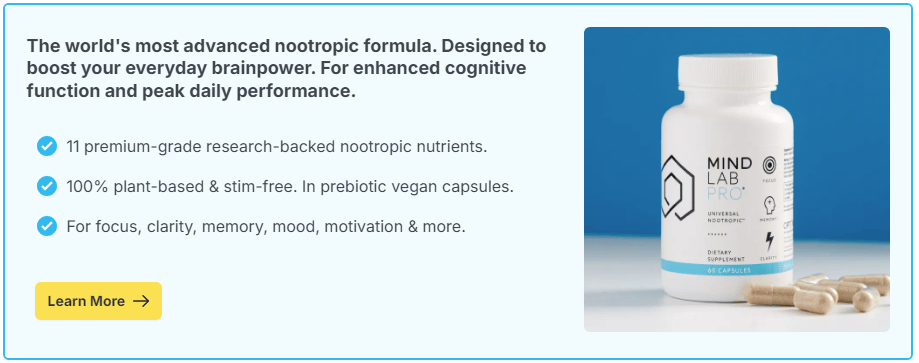- Enhancing Brain
- Posts
- 5 PROVEN Brain Benefits of Cold Showers
5 PROVEN Brain Benefits of Cold Showers
Most people hate cold showers (Me too).
But, they might be the cheapest brain booster on the planet.
Studies show cold water can rewire your brain chemistry, sharpen focus, reduce stress, even protect memory as you age.
Here’s 5 proven brain benefits of cold showers you can start using right now. 👇
Mood & Motivation Switch

Cold exposure drives some of the most powerful chemical shifts ever measured in the brain.
🔹 Norepinephrine increases up to 530% - this neurotransmitter heightens alertness, improves attention, and regulates energy.
🔹 Dopamine rises around 250% - the motivation molecule, linked to drive, learning, and long-term focus.
Unlike caffeine or sugar spikes, these changes last for hours.
Functional MRI studies show cold immersion strengthens connectivity in the prefrontal and anterior cingulate cortex - brain regions that control mood and attention and are often disrupted in depression and anxiety.
That’s why clinical trials are now testing cold water therapy as a treatment for mood disorders.
Stronger Thinking & Memory

Cold exposure doesn’t just sharpen alertness in the moment - it protects and strengthens the brain long-term.
In a controlled study published in Physiology & Behavior, just 4 weeks of cold immersion (10°C, 10 minutes, 3x per week) improved processing speed and mental flexibility, cutting task times from 15.1 seconds to 11.0 seconds.
Cold also stimulates cold-shock proteins like RBM3. These proteins repair and preserve synapses - the connections between brain cells. Loss of RBM3 is linked to Alzheimer’s and other neurodegenerative diseases. Boosting it through cold exposure may slow or even prevent cognitive decline.
Animal studies show increased RBM3 prevents memory loss, protects against neurodegeneration, and prolongs survival in models of Alzheimer’s and prion disease. Early human research finds the same protein elevated in regular cold-water swimmers.
Cold showers are more than a morning wake-up, they may be one of the simplest tools for long-term brain protection.
Stress Resilience & Adaptation

Cold showers put your body under short, controlled stress.
At first your heart races, breathing speeds up, and stress hormones rise. But with practice, your system adapts.
Over time, baseline cortisol levels (the main stress hormone) go down, and your nervous system learns to calm faster after challenges.
This is why regular cold exposure is linked to lower anxiety and better emotional control.
Scientists call this training effect on the body’s stress-control network (the HPA axis) a form of resilience: you become less reactive to everyday pressures, both physically and mentally.
Deeper Sleep & Faster Recovery

Cold exposure helps your brain shift into deeper, more restorative sleep.
When you cool your body before bed, it mimics the natural drop in core temperature that signals the brain to release melatonin and enter sleep mode.
Studies show athletes who used cold water immersion before bedtime had more deep sleep in the first 3 hours, fewer awakenings, and better overnight recovery.
Deep sleep is when the brain consolidates memories, clears toxins, and repairs itself.
Cold showers taken 3-4 hours before bed may be one of the simplest ways to improve sleep quality and speed up brain recovery.
Neuroplasticity & Brain Growth

Cold exposure stimulates the release of BDNF (Brain-Derived Neurotrophic Factor) - a protein that supports the growth and repair of neurons.
Higher BDNF levels are linked to better learning, stronger memory, and long-term brain health.
It also boosts cold-shock proteins like RBM3, which help protect and rebuild synapses.
These proteins are crucial because synapse loss is one of the earliest signs of neurodegenerative disease.
Research shows the hippocampus - the brain’s memory hub, is especially responsive.
Regular cold exposure may keep this region flexible, allowing your brain to adapt, form new connections, and stay sharp with age.
Tips & Tricks
🔹 Start small: End your normal shower with just 30 seconds of cold. Add time slowly as you adapt.
🔹 Morning = focus, night = sleep: Use cold early in the day for energy, or 3-4 hours before bed for better sleep.
🔹 Breathe, don’t panic: Slow inhales through the nose calm your nervous system and make it easier.
🔹 Track it: Keep a habit tracker or use the Wim Hof Method app to gamify your progress.
🔹 Stay safe: If you have heart problems or medical conditions, check with a doctor first.
Tools & Resources
PL Sleep - A natural sleep aid with low-dose melatonin from tart cherry, plus magnesium and L-theanine. Supports deeper, higher-quality sleep without grogginess.
The Wim Hof Method - A practical guide from the “Iceman” himself on combining breathing, cold, and mindset for health and performance.
Wim Hof Method App - Guided breathing exercises, timers for cold showers, and habit tracking in one place.
Shower Thermometer - Clip it to your showerhead and know the exact temperature so you can train consistently in the 10–15°C range used in studies.
Thank you for reading 🙏
Last winter my water heater broke and I was stuck with ice-cold showers for a few nights.
I hated every second of it, but I can’t deny how awake and focused I felt after.
I don’t take cold showers every day, but I’ve used them before big moments. Once I took one before an exam in the morning, and it worked better than any coffee.
Give it a try this week, just 30 seconds, and see how your brain responds.
And if you found this issue useful, forward it to a friend who could use a mental boost.
P.S. Check out previous issues @ EnhancingBrain.com

